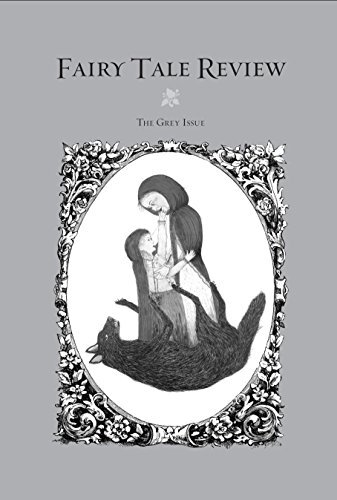A vivid and funny memoir about growing up Gypsy and becoming American
Fifteen-year-old Oksana Marafioti is a Gypsy. This means touring with the family band from the Mongolian deserts to the Siberian tundra. It means getting your hair cut in "the Lioness." It also means enduring sneering racism from every segment of Soviet society. Her father is determined that his girls lead a better, freer life. In America! Also, he wants to play guitar with B. B. King. And cure cancer with his personal magnetism. All of this he confides to the woman at the American embassy, who inexplicably allows the family entry. Soon they are living on the sketchier side of Hollywood.
What little Oksana and her sister, Roxy, know of the United States they've learned from MTV, subcategory George Michael. It doesn't quite prepare them for the challenges of immigration. Why are the glamorous Kraft Singles individually wrapped? Are the little soaps in the motels really free? How do you protect your nice new boyfriend from your opinionated father, who wants you to marry decently, within the clan?
In this affecting, hilarious memoir, Marafioti cracks open the secretive world of the Roma and brings the absurdities, miscommunications, and unpredictable victories of the immigrant experience to life. With unsentimentally perfect pitch, American Gypsy reveals how Marafioti adjusted to her new life in America, one slice of processed cheese at a time.
Anthologies
A compelling collection of essays providing a comprehensive vision of immigration to the United States in the late twentieth and twenty-first centuries—the indispensable companion to Immigrant Voices.
Filled with moving narratives by authors from around the world, Immigrant Voices: Volume II delivers a global and intimate look at the challenges modern immigrants confront. Their stories, told with pride, humor, trepidation, candor, and a touch of homesickness, offer rarely glimpsed perspectives on the difficult but ultimately rewarding quest to become an American.
From the humorous experiences of Firoozeh Dumas, author of Funny in Farsi, to the poignant struggles of Oksana Marafioti, author of American Gypsy, this collection travels from Burundi to Afghanistan, Egypt to Havana, and Cambodia to Puerto Rico, to present incredible contemporary portraits of immigrants and illustrate that America is, and always will remain, a fresh and ever-changing melting pot.
The Perpetual Engine of Hope, a collection of short stories inspired by vintage Las Vegas photographs, takes you on an epic journey from the heyday of the mob era to a dystopian future of dashed dreams. No matter the genre, from crime noir to horror, psychological drama to urban fantasy, these stories have something compelling to say about Las Vegas and its ability to inspire hope even amid the most dire circumstances. Along the way, the writers revel in the city's rich past and ponder its uncertain future, the historic images driving them to consider Las Vegas from fresh and illuminating perspectives.
Experience the “Real Las Vegas” Through Writings About Reinvention
In a wide-ranging anthology that moves from the ancient artists of southern Nevada who carved petroglyphs into rock walls to contemporary family trauma, 10 Las Vegas essayists examine the weight of the past on the present―and, perhaps, the future. Set in and around a city with its own peculiar and complicated relationship to the very idea of history, these eclectic stories, essays, and poems examine the topic from a variety of surprising directions.
Go back in time to visit the basket-weaving tribes that predate the city’s founding. Experience the heady midcentury days of freewheeling law enforcement. Follow an abuse survivor as she revisits the sites of family torment. Join a young African-American man as he experiences a racial epiphany in the county morgue. Listen in as a photographic model ponders the psychology of the men who hire her to recreate urgent moments from their pasts.
Through such stories, this collection―the 10th volume in the Las Vegas Writes series―presents a singular view of a city that’s forever negotiating the uneasy passage between then and now.
When we speak of grey as a location, placing a thing into a grey area, the color represents territory where the definite becomes lost. Grey lets us know that the truth is not always clear; even the most well-known paths can turn strange when a low grey cloud of fog rolls in. Grey is an act of subtraction, the loss of sun, joy, and color. Regrets are the natural property of grey hairs, said Dickens. Since grey is a symbol for the loss of youth, it seems a fitting issue for a theme about youth who are lost.
Getting lost is one of the most widely used narrative vehicles of all time. Once characters become lost, they can stumble upon anything—it’s a light-speed bullet train between credibility and suspension of disbelief. Falling down a rabbit hole or stepping off the trail in a labyrinthine wood can transport a character to another world entirely in a manner of seconds. When a protagonist starts to get lost, something exciting is about to happen.
Fiction
When a team of ghost hunters goes rogue, Olivia Stone, rookie federal agent, is dispatched to investigate. What starts off as a simple assignment quickly turns into a job from hell. Literally. Not only does Olivia join the ghost hunters in a battle against murderous demons, she also falls hard for James Donatti, the team's enigmatic leader who makes it clear he wants nothing to do with her. As the investigation unfolds, Olivia and James are drawn together by an inexplicable force, but will their romance survive what's in store for them?





